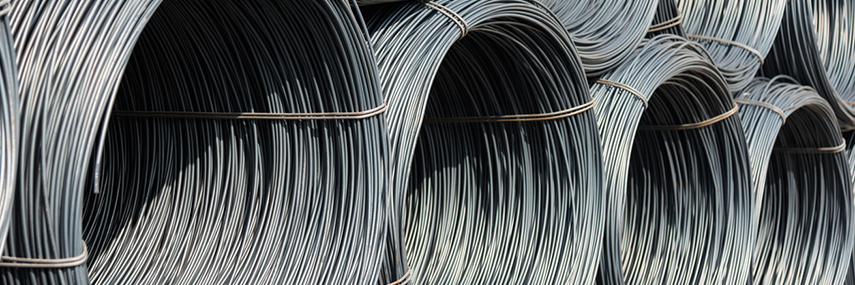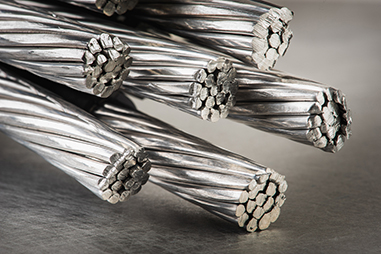Read Our Blog
6 Common Applications of Aluminum Wires

Aluminum is widely used in the electrical industry and is a popular choice for transmission wires. It is strong, versatile, and durable, making it perfect for several applications. However, it is crucial to understand how aluminum cables are made and used, so you can learn the essentials to make an informed decision.
6 Benefits of Using Aluminum Wires
- Lightweight yet strong – Although around a third of steel’s weight, aluminum is strong, making it perfect for transmission cables, vehicle panelling, building cladding, and several other applications.
- Corrosion resistance and cost-effectiveness – It naturally generates a thin protective coating when it comes into contact with an oxidizing element. This layer protects the surface from corrosion. Moreover, it is easier and cheaper to transport than most other metals.
- Electrical conductivity – This metal is an excellent conductor of electricity and heat, so it is preferred for power transmission lines and other applications such as computer motherboards and LED lights.
- Flexibility and reflectivity – It is easily formable and a good reflector, which is why aluminum is used in light fittings and rescue.
- Impermeable and odourless – Even a thin sheet of aluminum is impervious and does not have taste or smell.
- Recyclability – It is 100% recyclable and retains its original properties during recycling.
How is Aluminum Wire Used to Make Transmission Cables?
The aluminum wire is suitable for transmission cables because it is lightweight, durable, and strong enough to withstand high-voltage currents. These wires are wound with insulation materials such as polyvinyl chloride, polyethylene, or quality rubber to ensure they have protection against environmental factors, including heat and moisture. This also helps reduce noise caused due to the vibrating currents. Aluminum wires are also often braided or laminated before being encased in the insulation material.
- Many layers of flat wires are wound together to form laminated ones. Doing so improves tensile strength while reducing overall weight.
- Braided aluminum strands are twisted into a tighter pattern to ensure additional protection against damage during installation or usage.
- Both types provide excellent flexibility, making them ideal for compact spaces requiring more movement without compromising performance.
The Most Common Type of Aluminum Cables
Stranded aluminum wires are popularly used in transmission cables. It consists of multiple twisted wires with a small diameter, making them more flexible than solid-core ones. They are often insulated with rubber sheaths or PVC to prevent corrosion and water damage. You can also coat them with a thin layer of tin to improve their conductivity and boost longevity. Tinned aluminum wires are utilized in offshore and marine applications where exposure to harsh conditions like extreme temperatures and salt water is more.
6 Popular Uses of Aluminum Cables and Wires
Electrical Wiring
This is one of the most common applications since aluminum is a great conductor of electricity. These wires are the right choice for uses where weight and space are a concern. They are also suitable for high-voltage functions because of their ability to resist corrosion.
Electrical Cables
Aluminum wires are used to manufacture cables, especially for high-voltage applications, due to their ability to withstand high voltage and resistance to corrosion. Moreover, they weigh less than copper ones, making transporting and installing aluminum electrical cables easier.
Telephone Wires
They are typically manufactured using aluminum wires due to their ability to conduct electricity and corrosion resistance properties. Moreover, since they are lightweight, it is easier to transport and install aluminum wires compared to their copper counterparts.
Construction of Buildings
Aluminum wires are also typically used in building construction projects. They are ideal for many purposes, including binding and fencing like barbed wires. These strands are also frequently used as an alternative to copper wires because they are cost-effective. Moreover, stranded aluminum cables are mostly used for feeder lines or main distribution wiring because of their reliability.
Manufacturing Airplanes
Aluminum wires are preferred in airplane manufacturing because of their strength-to-weight ratio. Moreover, they are also corrosion-resistant, making them an ideal material for aircraft construction.
Automotive Applications
Various automotive applications generally use aluminum wires, especially for electrical wiring, binding, and fastening. They are also often used as an alternative to steel wires in some tasks.
We Manufacture Top Quality Aluminum Wires in Canada
Nexal Aluminum offers a range of high-quality aluminum wires and welding consumables. We serve the needs of distributors and manufacturers across North America and ensure superior customer service. Whether you need 250 mcm aluminum wire, 4 0 aluminum wire, 2 aluminum wire, or any other specification, our expert team will facilitate quick delivery.
For more details about our products, please call us at 1-905-629-8282 or fill out our online contact form. We will deliver top-grade aluminum alloy wires that fit your requirements.






